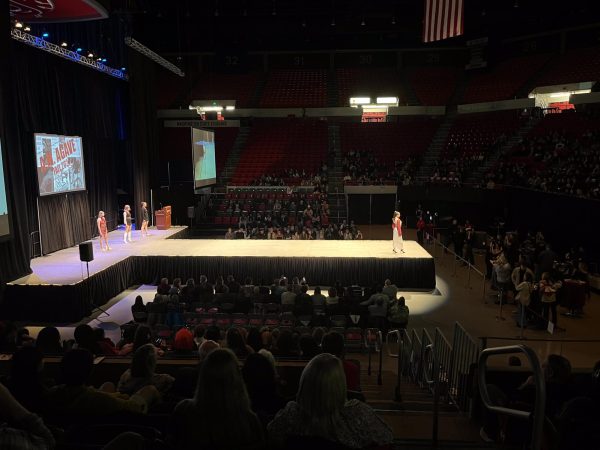Music is dead
February 7, 2014
As you flip through the endless loop of radio stations, you begin to wonder if you have stumbled into the purgatory of pop music.
Radio killed music when we decided we’d pick and choose what we want our listeners to hear. We’ve homogenized music into a giant melting pot consisting of four chords and simple beats—saccharine and sugary—we’re fed pop and delight.
You’ve grown numb to the pattern of advertisement, forgettable pop song, and advertisement, repeat.
Supposedly, we found the secret to making a billboard hit: a formulaic piece appealing to the ear, according to the MIR team of the University of Bristol, publishers of the chart topper detecting software ‘ScoreAHit’.
We’ve voided the creative process that once saturated and celebrated the subtle moments of life to favor a system that focuses on generating a profit for the greater masses. We have eliminated the idea of creating iconic legends—at end of the day, we have only have Justin Beiber and Miley Cyrus to represent our generation.
In light of this, we may bemoan the death of originality and the rise of the new generation of stale, hollow music devoid of artistic merit—songs solely created for the sake market value.
For the sake of gaining popularity, we have forgone creativity in leiu of a marketable product. With the rise of pop artist manufactures, such as Ark Music Factory, the producers Rebecca Black’s ‘Friday’, we’ve developed the notion that making music is no longer about personal expression, but rather about making a couple of bucks by following a mathematical rule.
We’re given what we’re asking for, but what we want lacks novelty. Nearly 92 percent of the top 10 Billboard songs are about sex, according to SUNY Albany psychology professor, Dawn R. Hobbs. The narrow range of popular topics in musical lyrics suggests a lack of desire to branch out into more creative endeavors.
Sexual content in lyrics sparks emotion, eroticism, and entertainment; however, we somehow manage to ignore the wide breadth of the human experience in favor of the same old tune.
Musical preference varies widely from individual to individual, yet, we create one-size-fits-all anthems to represent an entire culture.
Perhaps we should be more willing to creep outside what is considered ‘edgy’ and explore the multitude of niches that exist outside of what is considered to be the mainstream ideal. If one likes apples and another likes oranges or tangerines, we ought to offer our own personal flavor to what has become a bland source of entertainment.






















